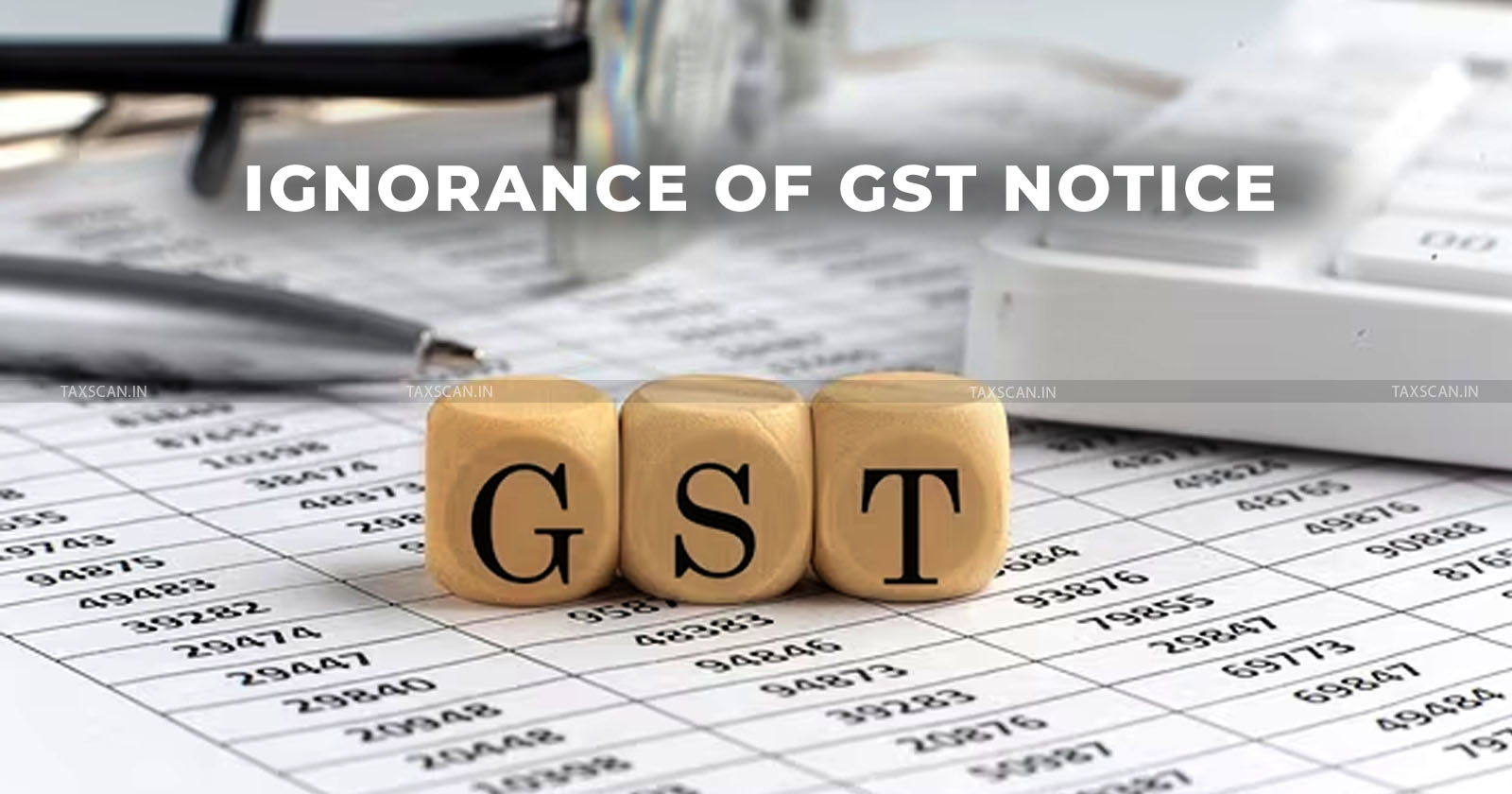Ignoring GST Notices? Understand the Triggers and Consequences

Neglecting a Notice from the Goods and Services Tax (GST) department can have severe implications, affecting both your financial well-being and business operations. The implementation of the Goods and Services Tax (GST) has significantly transformed India's tax system, aiming to simplify taxation and enhance compliance. Whether you're a business owner or an individual taxpayer, understanding the nuances of the GST system is of utmost importance.
One critical aspect that demands immediate attention is how you handle GST notices. Disregarding these notices can lead to potential penalties and financial repercussions. In this article, we will delve into the significance of promptly addressing GST notices and explore the potential consequences of non-compliance.
Non-responsive behaviour to GST notices constitutes an offence categorised under Section 122(xvii) within Chapter XIX of the Central GST Act, 2017. Section 122 outlines penalties for specific offences and clause xvii specifically addresses individuals who "fail to furnish information or documents requested by an officer in accordance with the provisions of this Act or the rules made thereunder or furnish false information or documents during any proceedings under this Act." This explicitly pertains to GST notices.
Section 122(1) establishes that any taxable person who has committed any of the offences mentioned in Section 122 is subject to a penalty. The penalty is set at Rs. 10,000 or an amount equivalent to the evaded tax, the undeducted tax under Section 51, the short-deducted tax, the tax deducted but not remitted to the government, the uncollected tax under Section 52, the short-collected tax, the tax collected but not remitted to the government, the irregularly availed input tax credit, the irregularly passed-on credit, or the irregularly distributed credit. The penalty will be imposed at the higher of the two amounts.
Triggers/Reason for Issuance of GST Notice
GST notices can be issued by tax authorities for various reasons, typically related to compliance and enforcement. These notices serve to inform taxpayers about specific actions they need to take or issues they need to address. Here are some common triggers or reasons for the issuance of GST notices:
- Non-filing of Returns: When a taxpayer fails to file their GST returns within the prescribed due dates, tax authorities may issue a notice to remind them to file the pending returns.
- Discrepancies in Return: If there are inconsistencies or discrepancies in the information provided in the GST returns filed by the taxpayer, tax authorities may issue a notice to seek clarification or corrections.
- Mismatches in GSTR-1 and GSTR-3B: Discrepancies between the data reported in GSTR-1 (outward supplies) and GSTR-3B (summary return) can trigger a notice, as tax authorities aim to reconcile the data for tax collection purposes.
- Unpaid Tax: When a taxpayer has outstanding tax liabilities or has not paid the GST due, authorities may issue a notice to demand payment or initiate recovery proceedings.
- Input Tax Credit (ITC) Mismatches: If there are discrepancies in the ITC claimed by a taxpayer and the ITC available in the recipient's GSTR-2A/2B, tax authorities may issue a notice to reconcile the differences.
- Audit and Assessment: Tax authorities may conduct audits or assessments to review a taxpayer's compliance with GST laws. Notices are issued to request documents, records, and information relevant to the audit or assessment process.
- Evasion or Tax Fraud: If tax authorities suspect tax evasion, fraudulent activities, or underreporting of taxable supplies, they may issue notices to investigate and take appropriate action.
- Annual Return Filing: Notices can be issued to remind taxpayers to file their annual GST returns (GSTR-9), which provide a summary of the financial year's transactions.
- Cancellation of Registration: Tax authorities may issue a notice for the cancellation of a taxpayer's GST registration if they have not been conducting business activities as per the GST law.
- Show Cause Notice: In cases where tax authorities believe there is a significant violation of GST laws, a show cause notice is issued to ask the taxpayer to explain their actions and potentially levy penalties.
- Rectification of Errors: Notices may be issued to correct errors or omissions in previous GST returns or transactions.
How to Avoid Penalties
To prevent penalties and navigate GST notices effectively, consider the following steps:
- Timely Response: Respond to GST notices promptly within the stipulated time frame.
- Seek Professional Advice: If you are unsure about how to address a particular notice, it's advisable to seek professional advice or consult with a tax expert.
- Maintain Accurate Records: Keep detailed and accurate records of your financial transactions, as these can help you address notice-related concerns.
- Regular Compliance: Ensure you are in compliance with GST regulations to minimise the chances of receiving notices.
- Educate Your Team: Educate your employees about the importance of GST compliance and the proper procedures for handling notices.
How to respond to the GST Notices
The taxpayer can respond to GST notices online via the GST portal, using either your or an authorised representative's digital or e-signature. If tax and interest payment is required, make the payment in the specified form and manner. After payment, submit the required reply to the tax authority that issued the notice.
To handle GST notices, you can delegate authority to a representative or a practising chartered accountant by issuing a Letter of Authorization under GST. This letter empowers the representative to reply to GST notices and act on your behalf.
Support our journalism by subscribing to Taxscan premium. Follow us on Telegram for quick updates


